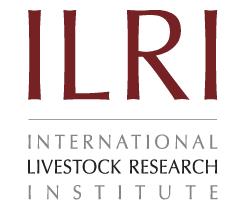
Wildlife farming and trade has grown into a multimillion industry in Vietnam. It primarily supplies food, income and other livelihoods to many communities, and supplements food production gaps from the livestock industry in other areas. One of the biggest threats of this occupation, however, is its potential to serve as a source of novel zoonotic pathogens. Published studies show that up to 75% of all emerging diseases are zoonoses, with most of these being associated with wildlife. Such novel zoonoses often cause huge health and socioeconomic impacts. Examples of novel zoonotic pathogens that recently emerged from wildlife include Ebola, SARS, SARS-CoV-2, Nipah virus and highly pathogenic avian influenza.
Depending on biosafety and biosecurity practices used to prevent cross contamination, wildlife farms, slaughterhouses or markets could serve as contact nodes from where zoonotic pathogens spillover to the human population. It is important therefore to characterize practices involved in wild meat production and marketing, identify nodes where humans, domestic animals and wildlife interface and quantify risk of spillovers to inform targeted surveillance and response.
ILRI is recruiting a PhD fellow to develop and implement a risk assessment framework founded on the One Health approach along wildlife meat value chains to determine the magnitude of this problem. The fellow will also analyze biological samples that were collected recently from these value chains to determine the prevalence of selected zoonotic pathogens in these chains. S/he will work with a team of researchers with a wealth of expertise on emerging infectious diseases (EIDs), food safety and antimicrobial resistance (AMR) work.
This ILRI PhD Graduate Fellowship position is part of the CGIAR Research Initiative on protecting human health through a One Health approach. The aim of the initiative is to protect human health by improving the prevention, detection and control of zoonoses, foodborne diseases and antimicrobial resistance (AMR) in low- and middle-income countries. The initiative will work in seven countries: Kenya, Ethiopia, Uganda, Côte d’Ivoire, India, Bangladesh and Vietnam.
Responsibilities
In close collaboration with ILRI supervisors, the fellow will:
- Develop a protocol for screening human and animal diseases including collection blood and serum samples for zoonotic diseases.
- Lead the sampling and process the samples mentioned above for laboratory analysis.
- Develop a risk assessment framework, focusing on risk of zoonoses spillovers from wildmeat value chain.
- Develop a survey for risk factors, knowledge, attitude and perception.
- Conduct statistical analysis and develop a disease transmission model from animal/wildlife to human.
- Draft a thesis and at least three journal publications.
- Undertake other relevant tasks as assigned by work supervisors.
About International Livestock Research Institute (ILRI)
The International Livestock Research Institute (ILRI) works for better lives through livestock in developing countries. ILRI is co-hosted by Kenya and Ethiopia, has 14 offices across Asia and Africa, employs some 700 staff and has an annual operating budget of about USD80 million. ILRI is a CGIAR research centre, a global research partnership for a food-secure future. CGIAR science is dedicated to reducing poverty, enhancing food and nutrition security, and improving natural resources and ecosystem services. Its research is carried out by 15 CGIAR centres in close collaboration with hundred...... read more

PhD Graduate Fellowship
| Application Deadline | 26 May 2022 |
| Country to study | Vietnam |
| Type | Fellowship |
| Sponsor | International Livestock Research Institute (ILRI) |
| Gender | Men and Women |
Aim and Benefits of PhD Graduate Fellowship
ILRI will offer a competitive stipend to cover living expenses, medical insurance cover, meet research expenses and tuition fees. The successful candidate will benefit from various capacity development opportunities available at ILRI and will be supervised jointly by an ILRI scientist and the university/academic supervisor.
Requirements for PhD Graduate Fellowship Qualification
- Bachelor’s degree in veterinary medicine, animal science, public health or other relevant areas and master’s degree within relevant field e.g., epidemiology, ecology and data science.
- Quantitative statistical analysis skills.
- Experience in qualitative or quantitative risk analysis is an advantage.
- Good skills in a programming/scription language (e.g., R and STATA).
- Experience with QGIS or ArcGIS.
- Willingness to travel and to spend time in the field.
- Ability to work in interdisciplinary and international team, very good interpersonal and communication skills.
- Excellent command in written and spoken English and Vietnamese.
- Proven publication record (peer-reviewed).
- Good working knowledge of MS Office packages.
Application Deadline
May 26, 2022How to Apply
All applications MUST include the following (applications not containing these documents will not be considered):
- A cover letter addressed to the Head of Capacity Development, ILRI expressing their interest in the fellowship position and what they can bring to the fellowship. The position title and reference number REF: GF/ILRI/AHH/04/2022 should be clearly marked on the subject line of the cover letter.
- CV including names and addresses (including telephone and email) of three referees who are knowledgeable about the candidate’s professional qualifications and work experience.
- Copies of academic qualification certificates/transcripts.
Applications must be submitted through our recruitment portal http://ilri.simplicant.com/ on or before 26 May 2022.
We thank all applicants for their interest in working for ILRI. Due to the volume of applications, only shortlisted candidates will be contacted.
ILRI does not charge a fee at any stage of the recruitment process (application, interview meeting, processing or training). ILRI also does not concern itself with information on applicants’ bank accounts.
To find out more about ILRI visit our websites at http://www.ilri.org
For more details, visit ILRI website.

